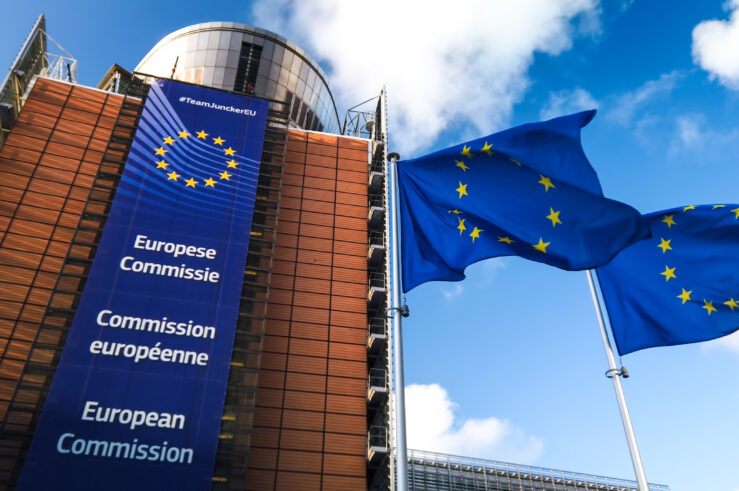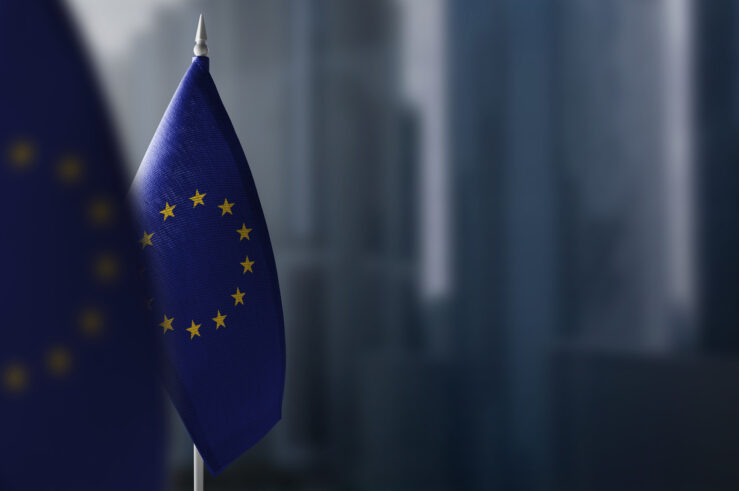Showing results for: “price gouging”
Untangling the 9th Circuit’s Ruling in Epic Games v Apple
The 9th U.S. Circuit Court of Appeals ruled late last month on Epic Games’ appeal of the decision rendered in 2021 by the U.S. District Court for the Northern District of California in Epic Games v Apple, affirming in part and reversing in part the district court’s judgment. In the original case, Epic had challenged as a violation ... Untangling the 9th Circuit’s Ruling in Epic Games v Apple
Artificial Intelligence Meets Organic Folly
In a May 3 op-ed in The New York Times, Federal Trade Commission (FTC) Chair Lina Khan declares that “We Must Regulate A.I. Here’s How.” I’m concerned after reading it that I missed both the regulatory issue and the “here’s how” part, although she does tell us that “enforcers and regulators must be vigilant.” Indeed, ... Artificial Intelligence Meets Organic Folly
If Necessity Is the Mother of Invention, New EU SEP Rules Are Decidedly Unnecessary
An unofficial version of the EU’s anticipated regulatory proposal on standard essential patents (SEPs), along with a related impact assessment, was leaked earlier this month, generating reactions that range from disquiet to disbelief (but mostly disbelief). Our friend Igor Nikolic wrote about it here on Truth on the Market, and we share his his concern that: As it currently stands, it appears the regulation will ... If Necessity Is the Mother of Invention, New EU SEP Rules Are Decidedly Unnecessary
The FTC’s Noncompete Rule: A Bridge Too Far
As I noted in January, the Federal Trade Commission’s (FTC) proposal to ban nearly all noncompete agreements raises many questions. To be sure, there are contexts—perhaps many contexts—in which noncompete agreements raise legitimate policy concerns. But there also are contexts in which they can serve a useful procompetitive function. A per se ban across all industries and occupations, as the ... The FTC’s Noncompete Rule: A Bridge Too Far
European Commission’s Leaked SEP Regulation Would Increase Costs for Innovators, Hurt EU Competitiveness, and Fail to Reduce Litigation
The European Commission is working on a legislative proposal that would regulate the licensing framework for standard-essential patents (SEPs). A regulatory proposal leaked to the press has already been the subject of extensive commentary (see here, here, and here). The proposed regulation apparently will include a complete overhaul of the current SEP-licensing system and will ... European Commission’s Leaked SEP Regulation Would Increase Costs for Innovators, Hurt EU Competitiveness, and Fail to Reduce Litigation
What the European Commission’s More Interventionist Approach to Exclusionary Abuses Could Mean for EU Courts and for U.S. States
The European Commission on March 27 showered the public with a series of documents heralding a new, more interventionist approach to enforce Article 102 of the Treaty on the Functioning of the European Union (TFEU), which prohibits “abuses of dominance.” This new approach threatens more aggressive, less economically sound enforcement of single-firm conduct in Europe. ... What the European Commission’s More Interventionist Approach to Exclusionary Abuses Could Mean for EU Courts and for U.S. States
No, Mergers Are Not Like ‘The Ultimate Cartel’
There is a line of thinking according to which, without merger-control rules, antitrust law is “incomplete.”[1] Without such a regime, the argument goes, whenever a group of companies faces with the risk of being penalized for cartelizing, they could instead merge and thus “raise prices without any legal consequences.”[2] A few months ago, at a ... No, Mergers Are Not Like ‘The Ultimate Cartel’
Biweekly FTC Roundup: Total Drama Island Edition
In a Feb. 14 column in the Wall Street Journal, Commissioner Christine Wilson announced her intent to resign her position on the Federal Trade Commission (FTC). For those curious to know why, she beat you to the punch in the title and subtitle of her column: “Why I’m Resigning as an FTC Commissioner: Lina Khan’s ... Biweekly FTC Roundup: Total Drama Island Edition
State-Mandated Digital Book Licenses Offend the Constitution and Undermine Free-Market Principles
Various states recently have enacted legislation that requires authors, publishers, and other copyright holders to license to lending libraries digital texts, including e-books and audio books. These laws violate the Constitution’s conferral on Congress of the exclusive authority to set national copyright law. Furthermore, as a policy matter, they offend free-market principles. The laws interfere ... State-Mandated Digital Book Licenses Offend the Constitution and Undermine Free-Market Principles
7 Top Takeaways from the 2nd Annual Mercatus Antitrust Forum
At the Jan. 26 Policy in Transition forum—the Mercatus Center at George Mason University’s second annual antitrust forum—various former and current antitrust practitioners, scholars, judges, and agency officials held forth on the near-term prospects for the neo-Brandeisian experiment undertaken in recent years by both the Federal Trade Commission (FTC) and the U.S. Justice Department (DOJ). ... 7 Top Takeaways from the 2nd Annual Mercatus Antitrust Forum
Why I’m a Skeptic of a Noncompete Ban
Under a recently proposed rule, the Federal Trade Commission (FTC) would ban the use of noncompete terms in employment agreements nationwide. Noncompetes are contracts that workers sign saying they agree to not work for the employer’s competitors for a certain period. The FTC’s rule would be a major policy change, regulating future contracts and retroactively ... Why I’m a Skeptic of a Noncompete Ban
Your Definitive End-of-Year Global Tech Regulation Wrap-Up: Who’s Doing What, Where, and What to Make of It
As 2023 draws to a close, we wanted to reflect on a year that saw jurisdictions around the world proposing, debating, and (occasionally) enacting digital regulations. Some of these initiatives amended existing ex-post competition laws. Others were more ambitious, contemplating entirely new regulatory regimes from the ground up. With everything going on, it can be ... Your Definitive End-of-Year Global Tech Regulation Wrap-Up: Who’s Doing What, Where, and What to Make of It













